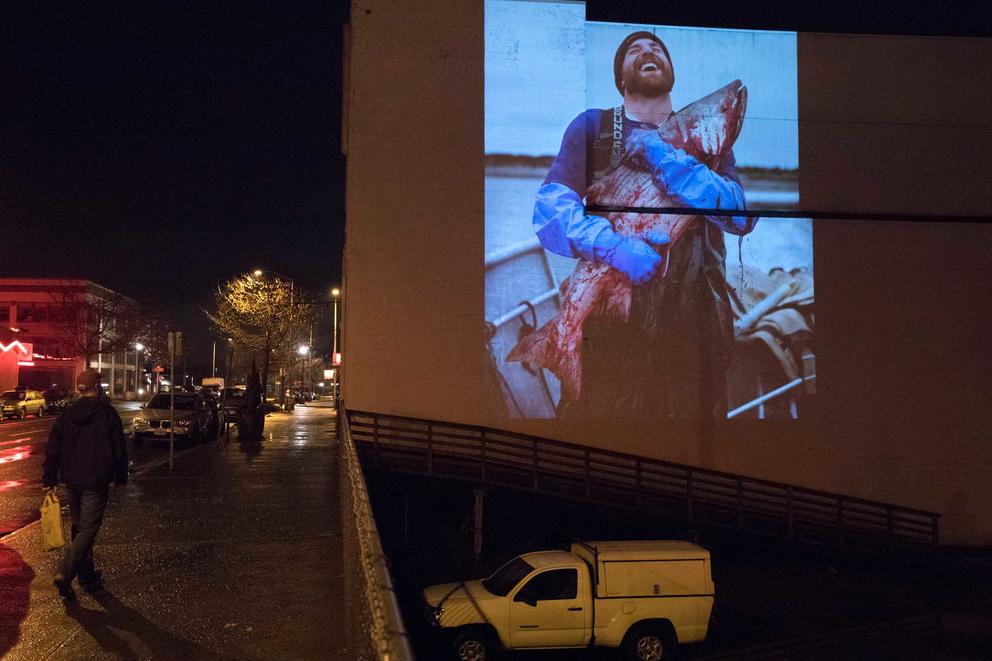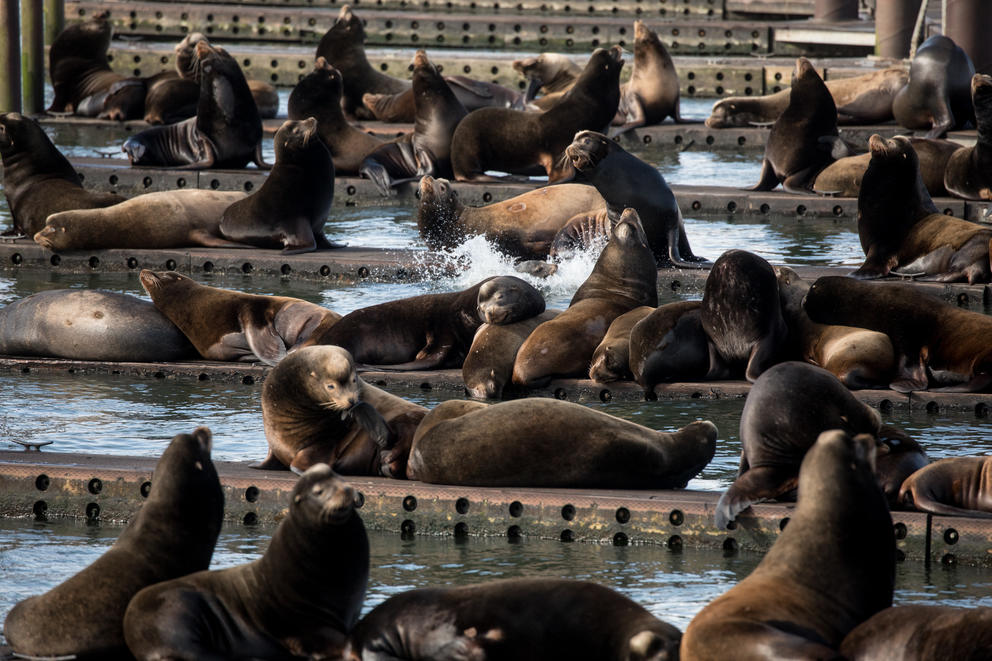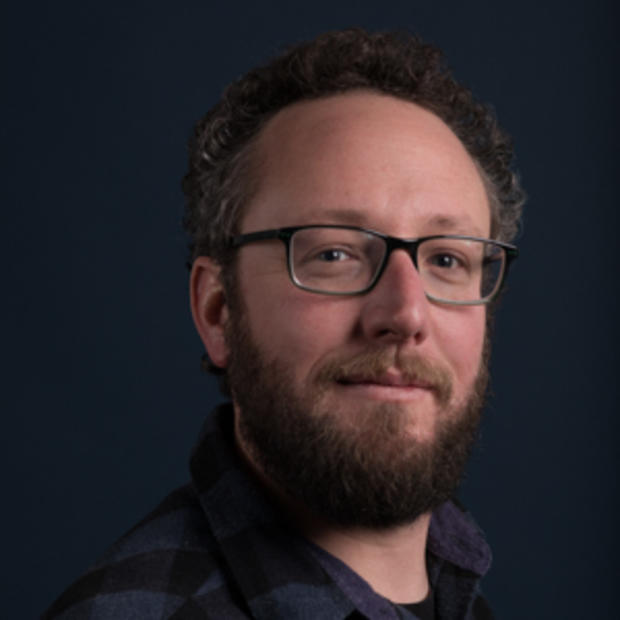Route 101 snakes its way along the West Coast from California to Washington state. In our state, it finally moves away from the shoreline and loops like a boathook around the Olympic Mountains back down Hood Canal and ends in Tumwater, onetime terminus for the Oregon Trail. The highway is famous for its scenery and stretches that can induce carsickness with its curves and dips.
It’s also known as a road that reflects the culture, history and differing communities and political viewpoints of our state. For the beginning of an occasional series on the people and places along Highway 101, Crosscut photojournalist Matt M. McKnight and I decided to start in Astoria at the mouth of the Columbia River.
The Columbia has been a gathering spot for traders and storytellers for thousands of years, and in the era of Euro-American settlement, this spot was a key Northwest nexus. The river’s “discovery” in 1792 sparked exploration. Lewis and Clark came overland and set up their winter camp, Fort Clatsop, nearby in 1805. Astoria is the oldest permanent American settlement on the West Coast, founded by John Jacob Astor’s fur traders in 1811.
It sits where the great River of the West meets the Pacific. Countless millions of salmon flowed through, and rich timber country lined its shores full of fur-bearing animals that caught the attention of the world’s fashion-makers and entrepreneurs.
For generations, Astoria has been a blue-collar town of mariners, loggers and fishermen. It became a hub of lumber milling, fishing and salmon canning. It was home to pilots who were needed to bring vessels safely across the dangerous sand bars at the river’s mouth.
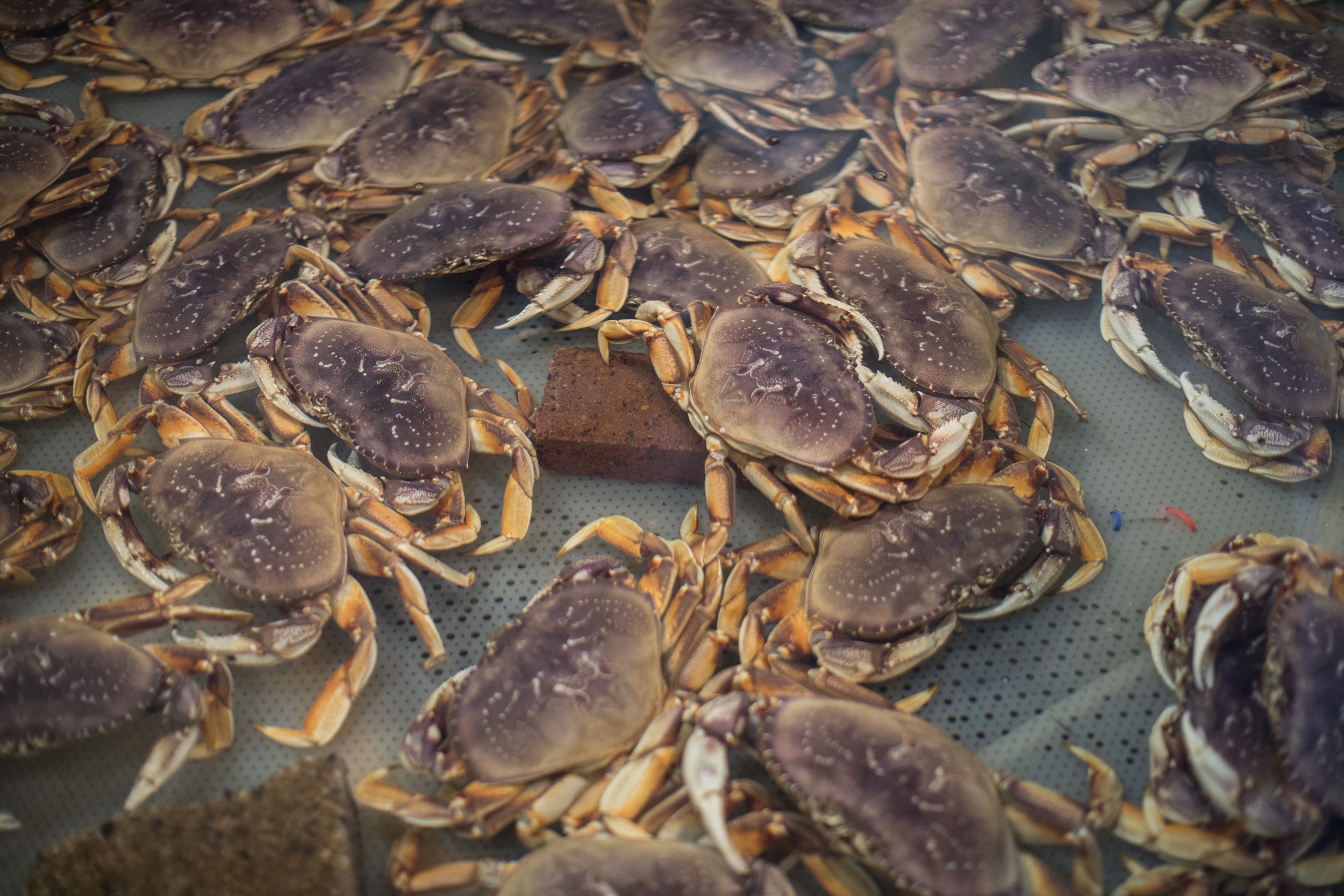
The town still wears its blue collar. Built on hills at the river’s edge, it looks more like an old New England port than most towns in the Northwest. It has grand Victorian houses but also modest 19th century worker housing, all aged in the damp ocean air. Huge container ships are anchored in the river off shore. It’s not dolled up like Port Townsend, yet there are plenty of brew-pubs and restaurants. A growing number of cruise ships call there in tourist season. Given its history, you’d be forgiven if you took it to be the southernmost town in Alaska.
Which makes it a different kind of gathering place today. The town is developing a cultural overlay. Port Townsend has its jazz festival; Ashland, its Shakespeare fest. Every year for the last two decades, Astoria has quietly hosted its annual Fisher Poets Gathering.
The event is at the end of February when commercial fishing boats are docked in their homeports and many crews are taking time off between fishing seasons. It’s a mental health break, too, where fisher folk can talk, mingle and socialize.
Like migrating winter ducks, nearly 100 poets with connections to the commercial fishing industry head to town for two-and-a-half days of reading their work at local pubs and theaters, taking writing workshops and boning up on issues facing the fleet — such as the reauthorization of the Magnuson-Stevenson Act, which governs U.S. fisheries. They hail from Alaska, Washington, Oregon, California, a few even from farther-flung ports in New England.
More than 1,700 people came out to hear them read, recite and sing songs over two nights and a Sunday morning get-together informally called “Fish Church,” where some of the gathering come to sing “Amazing Grace,” share a last poem, say goodbye. All that’s needed to partake of this grand seafood chowder of poetry and unique Northwest culture is a $15 button and the desire to binge on bards and beer for a weekend.
Towns like Astoria are shifting from the old resource economy to ones driven by tourism, urban refugees, food and the arts. At one end of town in a neighborhood called Uniontown, where lefty cannery workers used to live, there’s a gas station with twin granite markers honoring “The Fisherman” and “The Logger.” Sadly, they look a bit like grave markers, and it’s partly true. Men no longer walk the streets in calked boots carrying axes, though you still see full logging trucks pass through. But living examples of The Fisherman still abound here. Much of the fleet is nearby in Warrenton, a few miles off Highway 101, in a marina full of boats that work the coast from California to Alaska. If it’s not salmon season, they are hauling in Dungeness crab or trawling for bottom fish off the coast.
So, Astoria is still an important port, and a small group of fisher poets began meeting and sharing their work 21 years ago — maybe 20 or 30 people, mostly men. And the gathering has grown and grown. These fisher poets are akin to cowboy poets. Their trade is a diminishing one of rugged individualists. They don’t wear Stetsons like their cowpoke counterparts but rather a uniform of old baseball caps, flannel shirts, Xtratuf rubber boots, and jackets and sweatshirts from places like Kodiak and Dutch Harbor in Alaska. Many look like they just stepped off the boat, or out of the bar.
Their living is based on catching wild fish — sinking nets into the deep and catching what you can with skill and wiles. They are less like cowpokes than prospectors heading into the unknown, hoping for a big strike day after day.
In Astoria, the poets scatter to a half-dozen or so venues and read or perform — three per set — from about 5 to 10 on a Friday and Saturday night. You can sit in one place all evening, or roam from club to pub indulging in a poetical smorgasbord at places like the Wet Dog Café, the VooDoo Room and the historic Liberty Theatre. Even a dedicated attendee would hear only about a third of those performing. It feels like bingeing on samples.
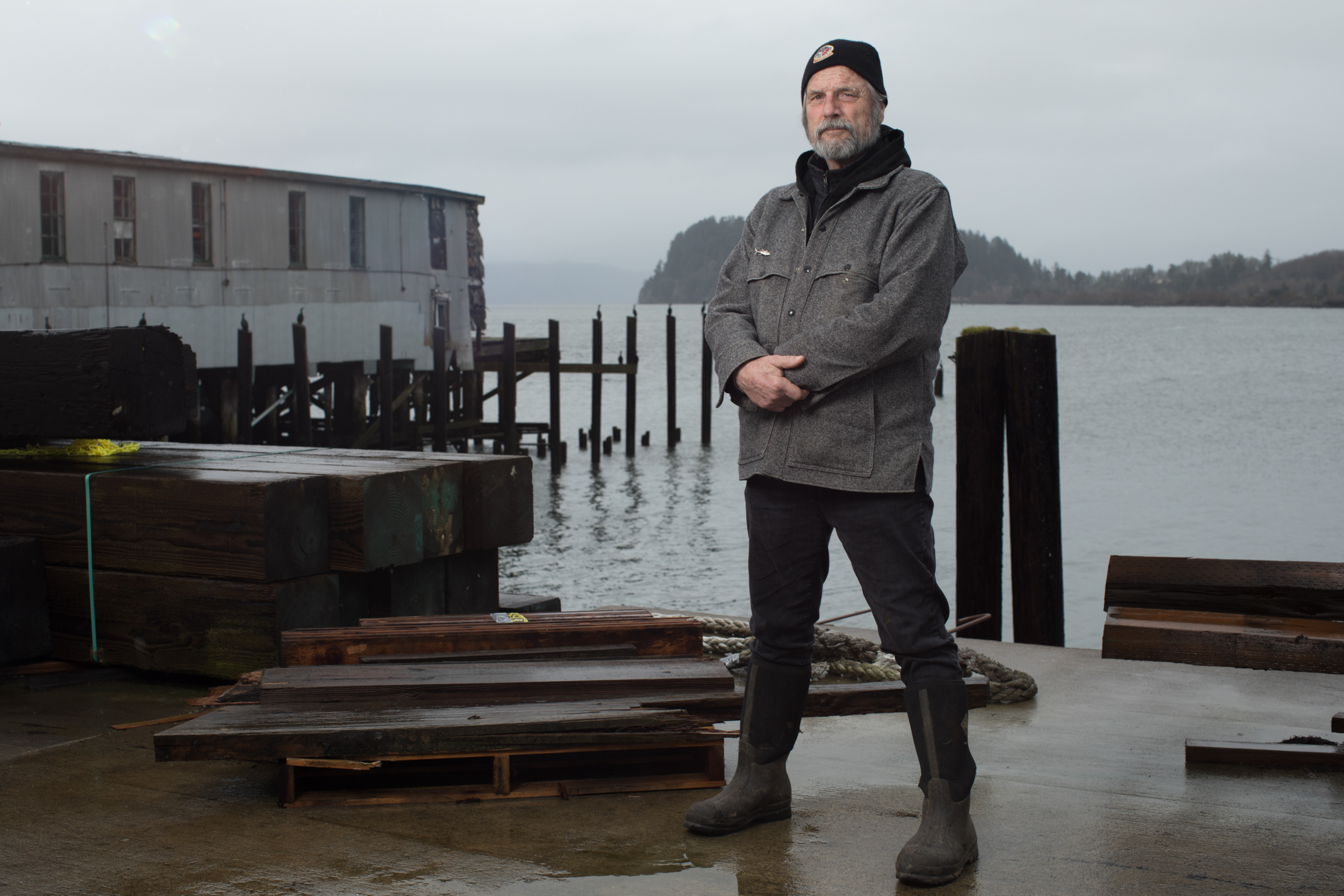
A crowd favorite — one of the gathering’s organizers described him as the “rockstar” of the fisher poet world — is Geno Leech, a mariner and former fisherman from Chinook, in Washington just “across the crick” from Astoria. He stands on stage as if he’s on a ship’s deck, legs splayed. He wears a salt-and-pepper beard that matches his gray wool Filson, guaranteed to keep the elements at bay. His body moves with his poems, which cover topics like the sexual sway of swabbing a deck, or the memories of hard dirty work:
The grogged, cowlicked crew rolled out of their bunks;
the boat wallowed deep in the trough.
Silent and sullen they pulled on dank boots
And questioned the lives they had wrought.
He recites from memory with elegant images wrapped in rhyme. The poems take us to hard and mundane places known only to those who go to sea. The audience can share memories of storms and injuries and the hard work of chasing fish in the wild or cleaning the stinking tanks where they are stored. Many of the poems are filled with humor and an elegiac quality of a hard, often-lonely life that doesn’t get any easier with time.
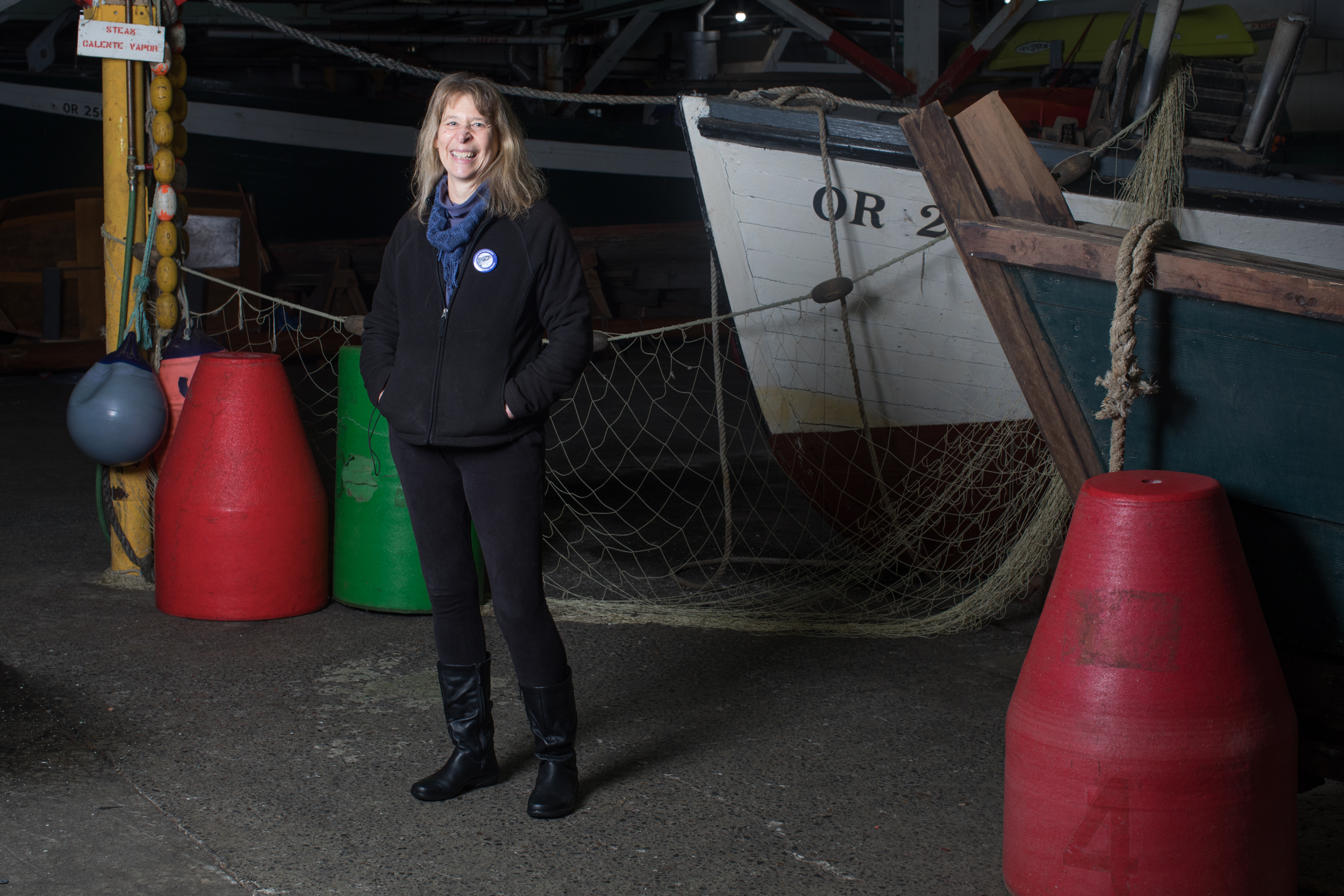
Next door at the Voodoo Room, poet Holly Hughes reads to a packed crowd. She’s been attending the Poets Gathering since the beginning when women in the fishing industry — and female fisher poets — were relatively rare, and poets and audience could fit in a single room. Women now make up about a third of the performers, according to Gathering organizer Jon Brodericks. Hughes has spent more than 30 years “working off Alaska’s shores” chasing salmon and herring. She lives on the Kitsap Peninsula in Indianola. She is a published poet and reads from her much-praised book “Sailing by Ravens.”
Her works draw from myths, the news, personal experience and imagined wanderings, such as when a raven guided the Norse discovery of Iceland, or the apocryphal story of a cow that supposedly fell from a cargo plane and sank a fishing boat:
What did those fishermen think watching that cow drop
from the clear sky? And the cow: did she try to run,
spindly legs treading air, or did she let her thick body go
slack, nostrils flaring, ears pinned back?
Who was more surprised: the cow by this plummet
Into a vast green pasture, or the fishermen
By a cow falling from the sky?
Even without falling cows, the sea seems to inspire poetry and epic stories. I asked poetry professor David Mason of Colorado College why fisher people were writing poems and gathering and not, say, electricians, meter maids or urban planners? Mason is an acclaimed poet in his own right and hails originally from Bellingham. He worked on fishing boats and farms, before landing in landlocked Colorado. For many years, he has taught an annual course on the Oregon Coast called “Reading and Writing the Sea,” though he has never read at the Gathering itself.
Writing about the sea, he says, is as ancient as it gets: Homer, the Bible, Shakespeare, Emily Dickinson, T.S. Eliot … . “The rhythms of the sea are, like our heartbeats, metronomes than underlie the rhythms of music and poetry,” he writes. “And the sea is also a source of mystery — we are fascinated by what we cannot see beneath the surface, so it's a place for the imaginal life as well as exploration.”
Holly Hughes echoes that sentiment when I ask her the same question. She says that anyone who had gone fishing knows there are long times when there is little to do but contemplate the waters in far-flung places. It cultivates a kind of meditation. “I think that’s where my poems come from,” she says. “You can’t be at sea without being moved by it.”
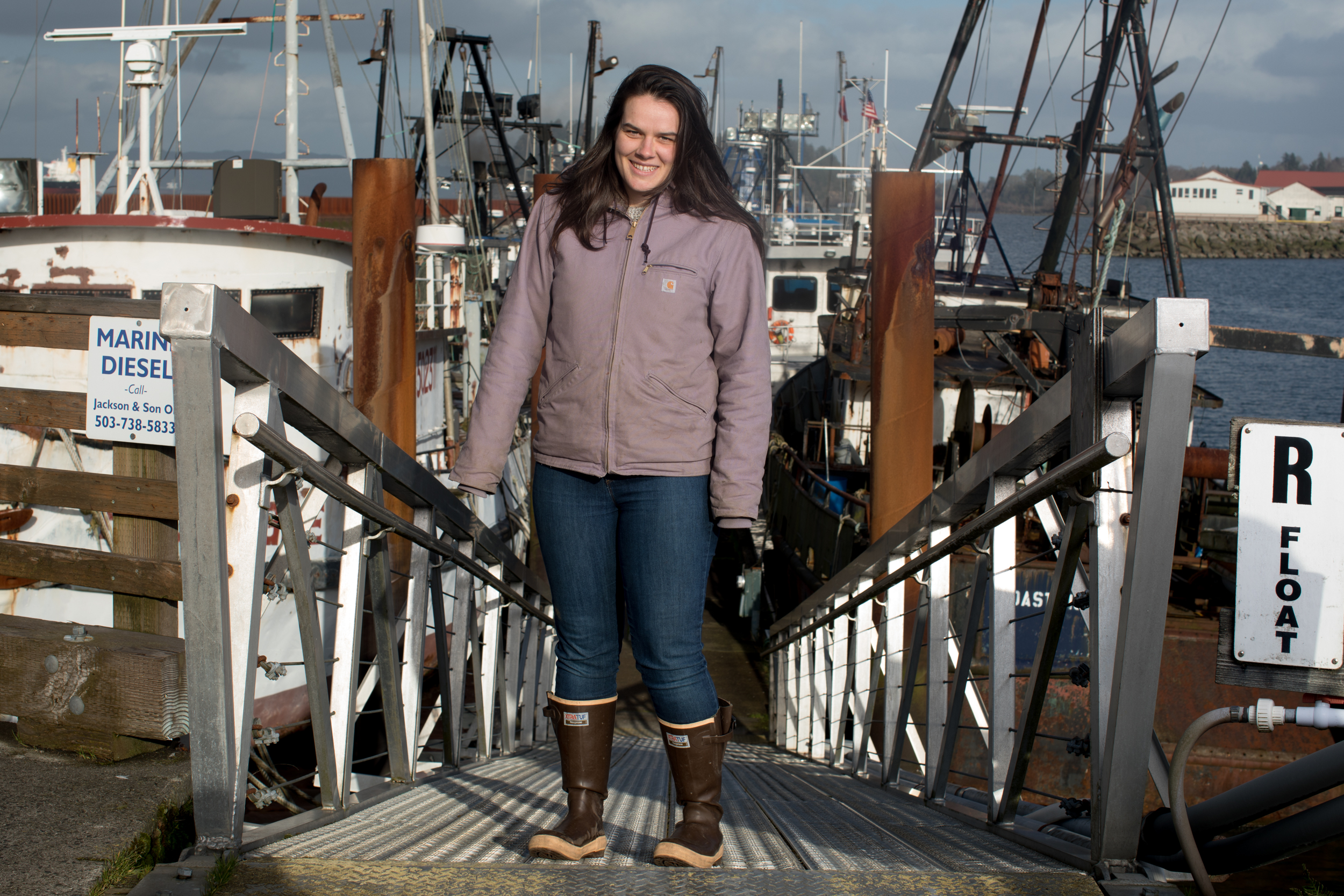
There are plenty of gray heads and long beards among the fisher poets, but it’s also vibrant with new, young voices and talent. A standout is Maggie Bursch. She’s in her mid-20s, lives in Bellingham and runs her boat and crew in Bristol Bay. She grew up in the business being on boats since childhood. Her rhythms are young; they feel more influenced by rap and she runs through her poems with passion and fluidity.
From her poem “Lashing Down Lines in a Midnight Storm”:
I cling to the heaving rail and swear to god
That I won’t die this way, with skin so soft
And halite crystals growing in my hair.
Then barely hanging on, I swear
And look into the filthy brine below.
Why is it that they say it’s green and blue
When for days it’s boiled every shade of black
Like its been drinking, and drinking makes it mad….
What is striking about Bursch and other young poets is that the Fisher Poets Gathering is an exhibition of a living culture. In the Northwest, the commercial fisher business dates from the mid-1800s and is still going, in many cases passed down from father to son or daughter. This branch of the trade features the commercial side — not tribal nor sports fishermen. It’s a folk culture with energy, tradition and common trials that faces huge future challenges: climate change, depleted stocks, mining threats to the salmon-rich Bristol Bay, ocean acidification, complex regulations, consolidation, competition. The cost of entry into the business — permits, vessels, and equipment — is a high barrier for the younger generations. Small ports are struggling to survive and provide infrastructure that independent boat operators need. Keeping the commercial food chain — from ocean bottom to port to seafood market — viable is an enormous challenge.
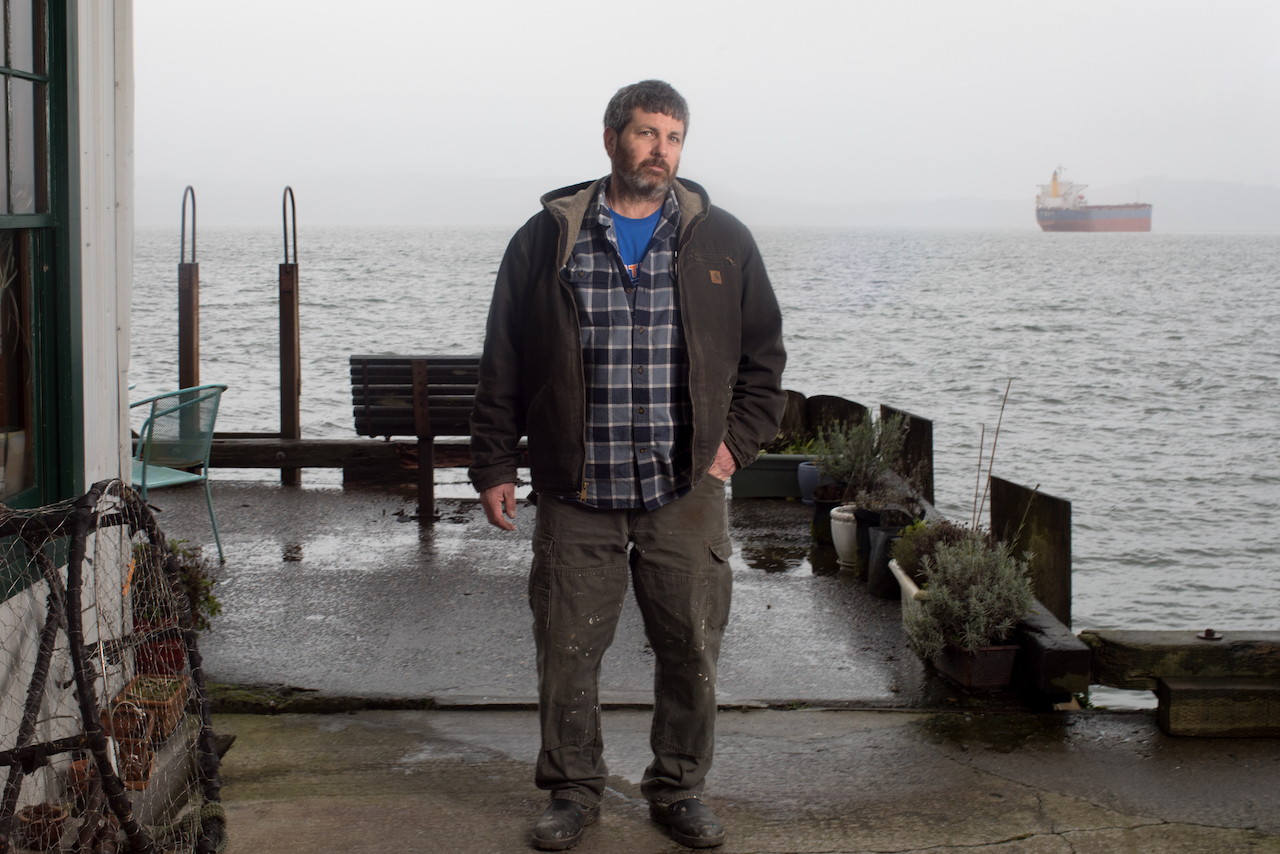
Fishing people are having to adopt new ways of surviving and contend with new problems. We visited poet-fisherman Rob Seitz and his teenage son, James, on Seitz’s boat in the Warrenton marina. Seitz grew up in Alaska and has been fishing since the early 1980s. He’s planning on opening a retail fish shop in downtown Astoria to sell his catches, like fresh black cod and crab. He hopes to have it up and running by summer when the cruise ships come to town. Like farmers, selling product direct to consumers is a way to make more money and stay in business. And with tourists coming on ships and the town’s growing cultural and culinary attractions, it promises a future for a challenging way of life.
Some local Astorians don’t care much for the gathering as it brings in outsiders — Astorians have a strong sense of identity and many have mixed feelings about the town’s changes. Being about “poetry” limits the Gathering’s local appeal in a working class town — a country music festival might do better. Still, Steve Forrester, former publisher of the Daily Astorian, says folks are starting to notice that “a lot of people are showing up” for the event these days, and that’s part of the future for the city. Rob Seitz tells a big crowd at one of his readings: “Without you, it would be just a bunch of fishermen telling lies in a bar.”
Even if you’ve never been on a boat, a visit to Astoria can feel like you’re at sea: shifty weather, strong Pacific winds, hail, fog, snow, ice, heavy rain, all in the course of a single day. The soundtrack is the constant bark of hundreds of sea lions that have taken over a local moorage. They are here for the fish, too. The riverside hotel we stayed in tells guests: “If their barking gets too much for you, we provide complimentary ear plugs for your convenience.”
I loved the chorus of sea lions and fisher poets. No earplugs for me, thank you.










